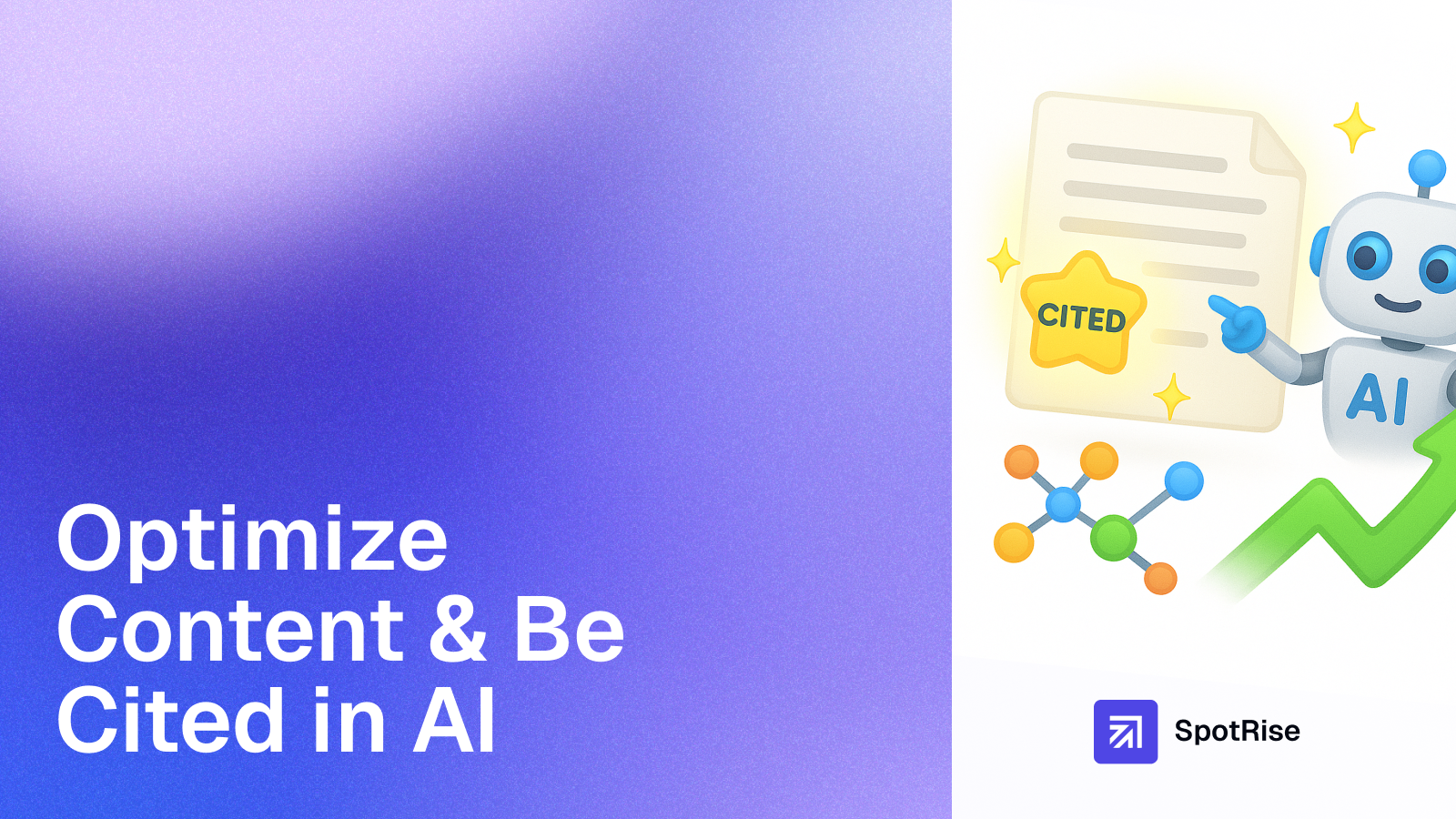January 8, 2026
Understanding the Google Core Update of December 2025: What It Means, Who It Affects, and How to Respond
January 8, 2026
Generative Engine Optimization (GEO): The Complete Guide to Ranking in AI Search
January 8, 2026
Make your content AI-friendly with structured data, clear answers, and trusted sources to boost citation chances
Author:

As generative AI tools like Google AI Overviews, Bing Copilot, ChatGPT, and Perplexity become integral to how people search, the next evolution of SEO focuses on making your content “AI-visible.” Unlike traditional SEO, where the goal is to rank in SERPs, AI SEO aims to have your content cited within AI-generated answers. Here’s how to optimize your pages to increase the likelihood of being mentioned and linked in AI search results.
AI search systems aggregate, analyze, and summarize high-quality pages that demonstrate trust, clarity, and authority. They look for structured, factual, and context-rich content to reference. The key selection factors include:
Structured data helps AI systems interpret your content semantically. Use JSON-LD schema to define page elements and relationships. The most relevant types for AI visibility include:
Article — define author, datePublished, and headline.FAQPage — help AI extract direct Q&A snippets.HowTo — structure step-by-step tutorials.Product — include price, rating, and description for commercial pages.Organization — reinforce brand identity and credibility.Validate your schema using Google’s Rich Results Test and ensure it’s error-free. Schema errors reduce trust in structured signals.
AI systems rely on facts that can be cited or verified. To improve your chances of inclusion:
Example:
<p>According to Statista, 68% of global marketers consider SEO their top acquisition channel (2024).</p>
AI prefers such well-structured, contextualized facts over general statements.
AI crawlers extract information more effectively from pages with clear hierarchy and patterns. Follow these structural best practices:
H1 and descriptive H2/H3 subheadings.This makes it easier for AI to identify concise, relevant portions of your page to cite.
Structured formats increase citation chances dramatically. Use:
Example:
<h3>Top Benefits of Optimizing for AI Search</h3>
<ul>
<li>Increased exposure in AI Overviews and Copilot answers</li>
<li>Higher trust and authority signals</li>
<li>Improved CTR from featured citations</li>
</ul>
AI systems prioritize trustworthy authors and brands. To boost your authority:
These signals tell AI that your brand is a reliable source of information worth citing.
AI prefers websites with consistent topical depth. Instead of covering broad, disconnected topics, build clusters around your main themes:
When AI models recognize your domain as an authority on a subject, your likelihood of citation increases exponentially.
Track where your brand appears in AI search results:
This data helps you identify which content types and structures AI prefers from your domain.
AI crawlers prefer recently updated pages with lightweight HTML. Best practices:
Being cited in AI search results is the new frontier of visibility. By combining strong structure, schema, and E-E-A-T with factual, scannable content, you can position your brand as a trusted AI source. The future of SEO is not just ranking — it’s being referenced by the algorithms shaping how information is discovered and trusted.
“AI doesn’t just read your content — it decides whether to trust it.”
Your new AI assistant will handle monitoring, audits, and reports. Free up your team for strategy, not for manually digging through GA4 and GSC. Let us show you how to give your specialists 10+ hours back every week.
Read More

January 8, 2026
10 min

January 8, 2026
10 min

January 8, 2026
10 min
Just write your commands, and AI agents will do the work for you.